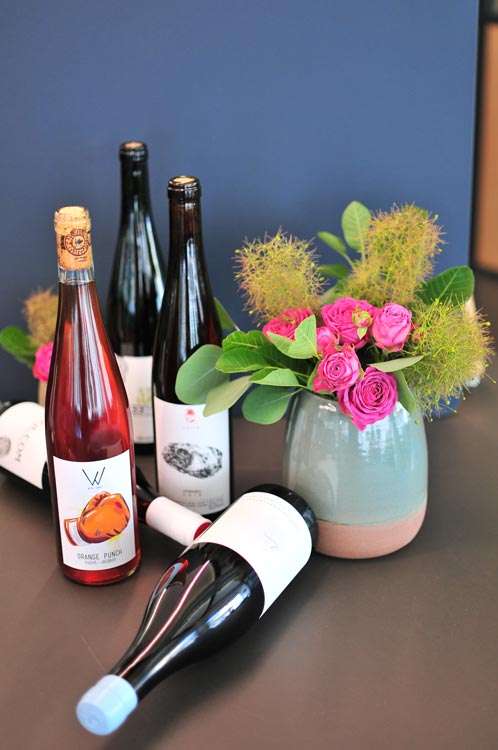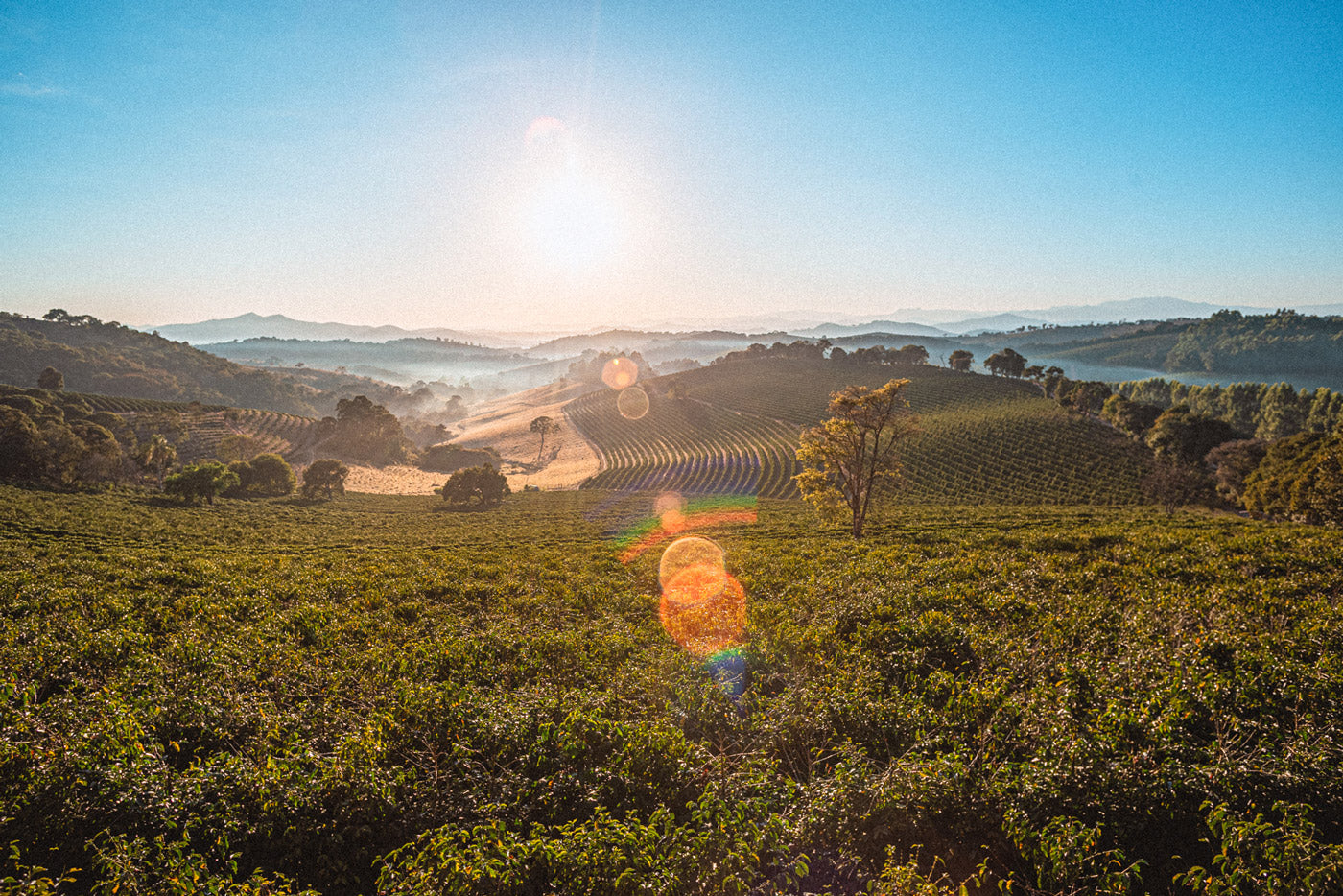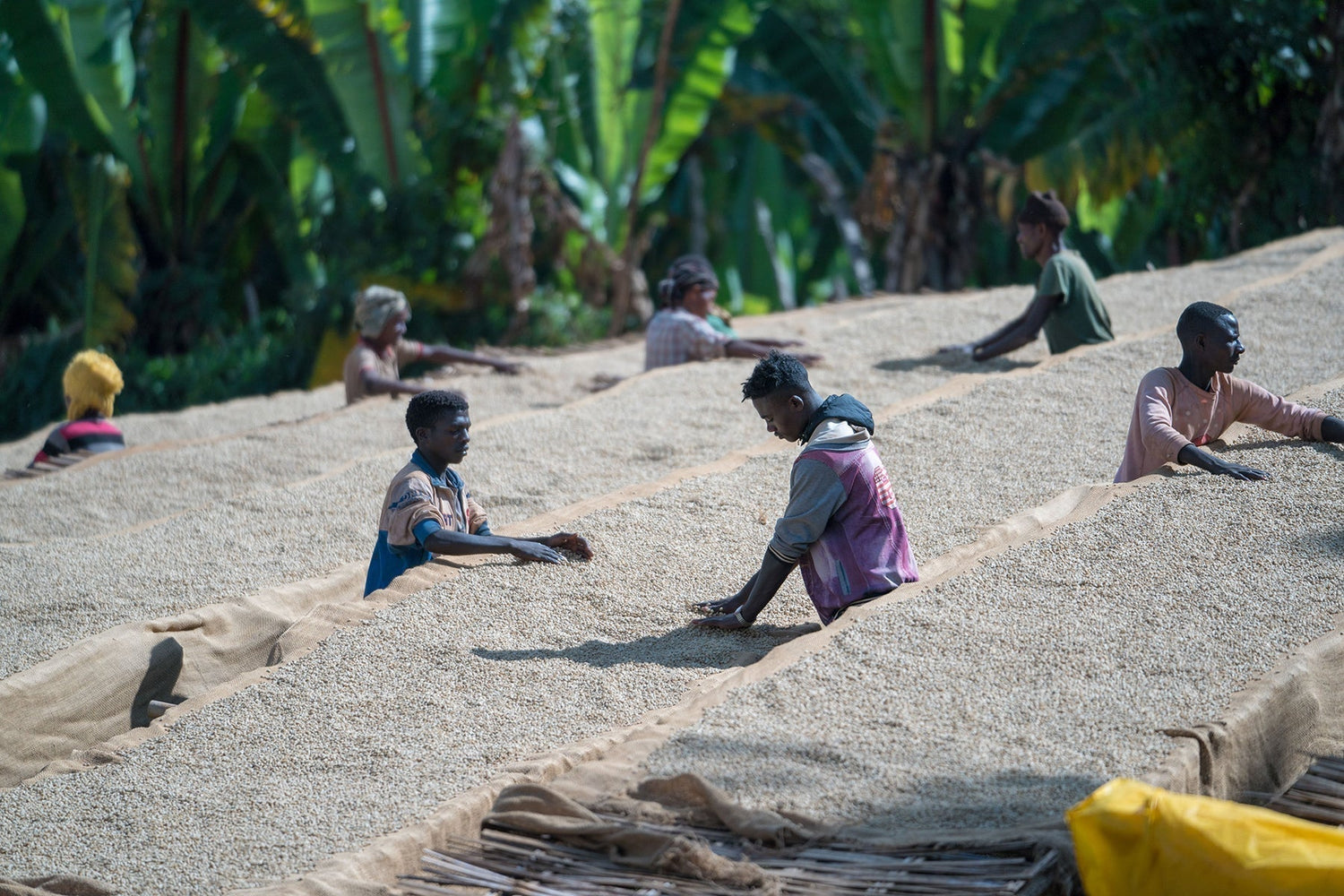Coffee and wine - two different but similar products that are an indispensable part of many people's everyday lives. While coffee with its caffeine provides an energy boost in the morning, for others it is a ritual to enjoy a glass of wine in the evening with a good meal or simply on the couch and let the day come to an end. Coffee and wine are simply part of life for many connoisseurs. This is precisely why the wide range of wines from Wein Danke is now also available in our Wildkaffee online shop . Both products have similarities in their history and composition. Elias Fischbacher from the Wildkaffee roastery wishes you lots of fun discovering and enjoying.

Coffee and wine - Exceptional wines of the highest quality
Quality is what counts. When it comes to coffee and wine, quality is our top priority. Over the years, our love of good food and good coffee has also developed a love of good wine. But we soon realized that it is not always easy to try something different, something unusual, than the traditional and well-known wines. So we started looking for winegrowers and vintners who process high-quality grapes in a completely different way. When it comes to coffee and wine, visits to the plantations and wineries also play a big role. Our buyer and sommelier Martin from Wein Danke , like his brother Hardi, regularly travels to various wineries and is not afraid to lend a hand himself. Through coincidences and visits to trade fairs, wineries and wineries, Martin has been able to get to know and appreciate more and more winemakers over time. These contacts are constantly maintained and expanded.
Coffee and wine - where do the exceptional wines come from?
As is usual with coffee and wine, the countries of origin of the vines or of the green coffee play a major role in the end result in the glass or cup. I'll go into the parallels between coffee and wine in more detail later, so let's get back to the exceptional wines. Most of the wines here come from the typical countries of origin of Austria, Germany, South Tyrol, Italy and Spain, but also from somewhat smaller wine regions such as Milan Nestarec 's Czech Republic . The exceptional wines are always grown and processed according to organic standards at the various partner wineries such as Weingut Nigl , Casa Rojo , Ziniel , Winzerhof Petz , Kloster am Spitz , Weingut Peter Sölva , Esterhazy and Wihler . Some of these wineries do not (yet) have organic certification, but everything is produced according to organic standards and old production methods, which is what gives them this exceptional taste. You can find out detailed information about the wineries by clicking on the respective estate.

Coffee and wine - parallels between specialty coffee and exceptional wines
Now we'll look at the similarities between coffee and wine. In the past, coffee and wine were both luxury goods. Unfortunately, these have now often moved towards mass production. There are a ton of quality differences and a variant to suit every budget. With coffee and wine, the purity and quality of the variety play a major influence on the price. While colorful blends of different grapes or coffees are significantly cheaper in comparison, coffees and wines from special wineries or plantations, where the main emphasis is on the quality of the product, are of course significantly more expensive. Product awareness also plays a major role here. Just like grape varieties, certain coffee varieties thrive particularly well in certain regions. The type of soil, sunlight and other climatic elements also play a major role in the development of the aromas. Did you know? At the World Wine Championships, 25 points about coffee are explained. You can find more information about the differences and similarities between wine and coffee here .
Coffee and Wine - Exceptional Natural Wines and Orange Wines
The different flavors of coffee and wine develop from the different grape varieties and coffee varieties. The subsequent processing of coffee and wine has a major influence on the taste. For coffee, it is the preparation and roasting of the beans , for wine, it is the fermentation and clarification . We are particularly interested in the topics surrounding natural wines and orange wines .

How Orange Wines are Made
Orange wines are made by fermenting juice, skins and berry components together. The dark pigments and tannins are extracted from the grape skins, which gives these exceptional wines their typical orange colour. In contrast to normal white wines, the wine is often more complex, aromatic and has a more distinctive taste. This is of course influenced by the grape variety, production method and aging. The result is quite simply a completely different and new taste experience and an expansion of the repertoire.
How Natural Wines are created
Over 8,000 years ago, neither vitamins, yeasts nor enzymes were added to wine production. Today's natural wines go back to the origins, so to speak, and away from mechanical and technical interventions in cultivation, grape ripening and processing in the cellar. In short: the winemaker tries to avoid standardized processes as much as possible and instead relies on the natural ripening and the resulting aromas of the wine. This preserves a broad spectrum of aromas and opens up completely new taste dimensions.
Also important!
Finally, it should be said that the terms orange wine and natural wine are not protected by law. There are no fixed rules as to which processes can and cannot lead to the end product. Orange and natural wines offer a very special experience beyond the usual world of taste and away from industrial mass-produced wines. They are wines with their own identity, diversity and sophistication that are incredibly enjoyable to drink and can be a fantastic accompaniment to food.
Here you will find our wide range of coffee and wine . Discover now and immerse yourself in new worlds of taste. We hope you enjoy it!


